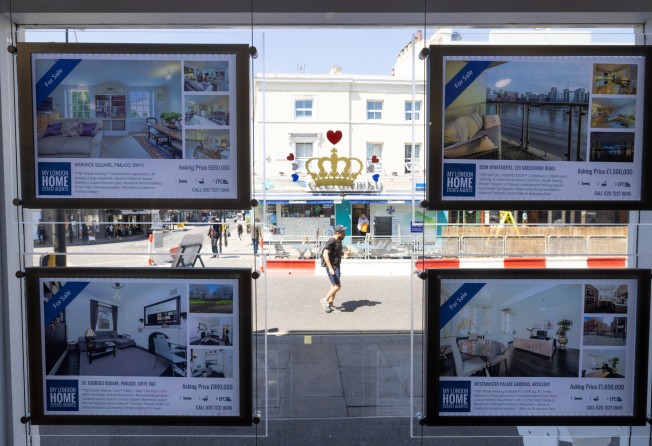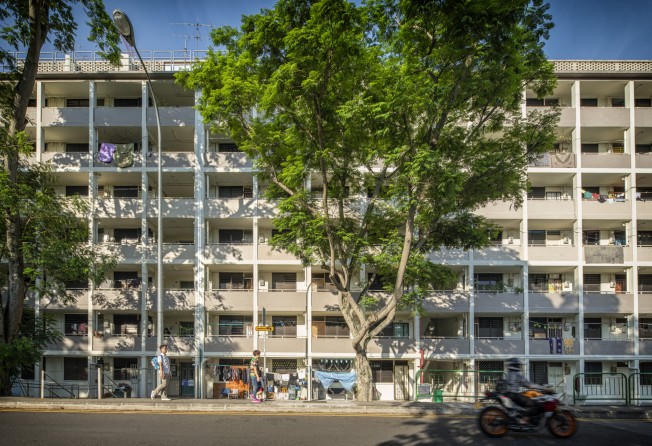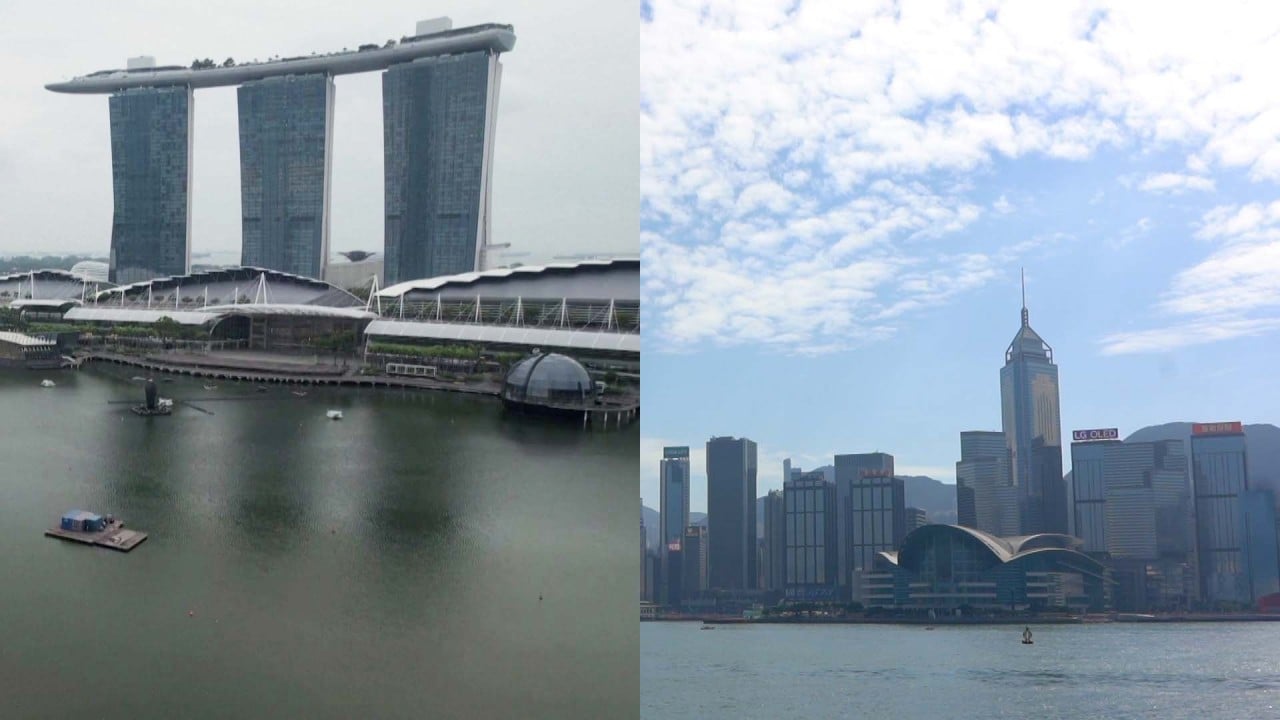
It’s pointless to compare Hong Kong’s falling home prices with Singapore’s booming market
- It may be tempting to view property market trends in the two economies against the backdrop of their much-discussed rivalry, but that would be misleading
- Unlike Singapore, Hong Kong has long suffered from a lack of affordable housing, and the recent fall in prices hardly constitutes a correction

The world’s leading financial centres have never been under such intense pressure. Over the past several years, the main commercial hubs have suffered a succession of shocks.
Just as London was contending with the fallout from Britain’s exit from the European Union, and escalating geopolitical tensions raised questions about Hong Kong’s future as Asia’s pre-eminent financial centre, the work-from-home revolution triggered by the eruption of the Covid-19 pandemic cast doubt over the role of the office, particularly in big Western cities.
In Asia, contrasting approaches to the pandemic have put the standing of the region’s financial hubs under sharper scrutiny. Singapore, which began opening up to the rest of the world last year, has bolstered its appeal in the eyes of international investors, who are drawn to the city state’s political stability and business-friendly regulatory environment.
Hong Kong, by contrast, has become less attractive to global businesses due to its stringent travel quarantine regime – the rules were significantly eased last month but still leave the city without a road map for full reopening – which has accentuated its dependence on a meaningful loosening of mainland China’s own draconian restrictions.
The diverging fortunes of the two cities come at a time when housing markets the world over are under increasing strain due to a combination of a further deterioration in affordability during the pandemic and the fastest rises in interest rates in at least four decades.
Much attention has been paid to falls in home prices, even though the declines are relatively modest compared with the dramatic increases in many countries in 2020-21.

Data from Knight Frank shows the degree to which these declines need to be put in perspective. While the worst performing markets in the second quarter of 2022 were nearly all in the Asia-Pacific region, three of the six Asian markets that witnessed price falls on a quarterly basis – Australia, New Zealand and South Korea – still saw values increase in annualised terms.
Comparisons between Singapore and Hong Kong – which have proliferated over the past several years – also need to be treated with caution.
In the first three quarters of this year, prices of private properties in Singapore increased 7.8 per cent, a sharper rise than in the corresponding period last year, data from the Urban Redevelopment Authority shows. In Hong Kong, on the other hand, prices dropped 9.4 per cent, according to an index of secondary values compiled by Centaline Property Agency.
This has put a spotlight on diverging policy responses. Last month, Singapore’s government introduced another round of measures to cool the market, which included rises in the interest rate floor used to calculate total debt servicing and mortgage servicing ratios for loans granted by commercial banks. The Hong Kong Monetary Authority, meanwhile, lowered its interest rate stress-testing requirement for mortgage loans.
Yet, such contrasts are misleading. Comparisons of the housing markets in Singapore and Hong Kong are fraught with apples-to-oranges risks. In Singapore, 80 per cent of residents live in public housing, 90 per cent of whom own their flats. In Hong Kong, on the other hand, private properties account for nearly 55 per cent of the market, while two-thirds of those living in public housing are renters.
How the private market fares is far more consequential for Hong Kong, particularly given acute concerns about low affordability and chronic undersupply. Ryan Ip, head of land and housing research at Our Hong Kong Foundation, said the two cities were “not really comparable” and “whatever happens in the private market in Singapore has much less of an impact”.
Indeed, Singapore’s government is more worried about the pace of price gains in the secondary, or resale, market for government-subsidised flats, which exceeded increases in the private sector in the first half of this year.
This is why last month’s cooling measures were focused more on the public housing system. Not only were the criteria for mortgage loans tightened, most private homeowners and those who sold their private homes now have to wait 15 months before purchasing resale flats in the public system.

Concerns about affordability have been fuelled by the headline-grabbing surge in the number of government-built resale flats changing hands for more than S$1 million (US$710,000). According to property adviser OrangeTee & Tie, there have been a record 303 million-dollar transactions this year, with more than a fifth of the homes fetching between S$1.2 million and S$1.5 million.
Christine Sun, senior vice-president for research and analytics at OrangeTee & Tie, said they were “even seeing more million-dollar sales in suburban areas”, which are helping to drive up prices for resale flats in both mature and non-mature estates alike.
If there is a common thread running through the two cities’ housing markets, it is politics. Singapore’s government is under pressure to curb excessive demand in the most important part of the housing market, which has long been an anchor for the ruling People’s Action Party.
Hong Kong, on the other hand, faces a housing crisis that has been festering for decades. The price declines – which do not even qualify as a meaningful correction – pale into insignificance when compared with the problem of addressing the lack of affordable and decent housing.
Debates over the advantages and disadvantages of Singapore and Hong Kong as financial centres will doubtless intensify. Yet, comparisons of the performance of their respective housing markets are misleading and unhelpful.
Nicholas Spiro is a partner at Lauressa Advisory
